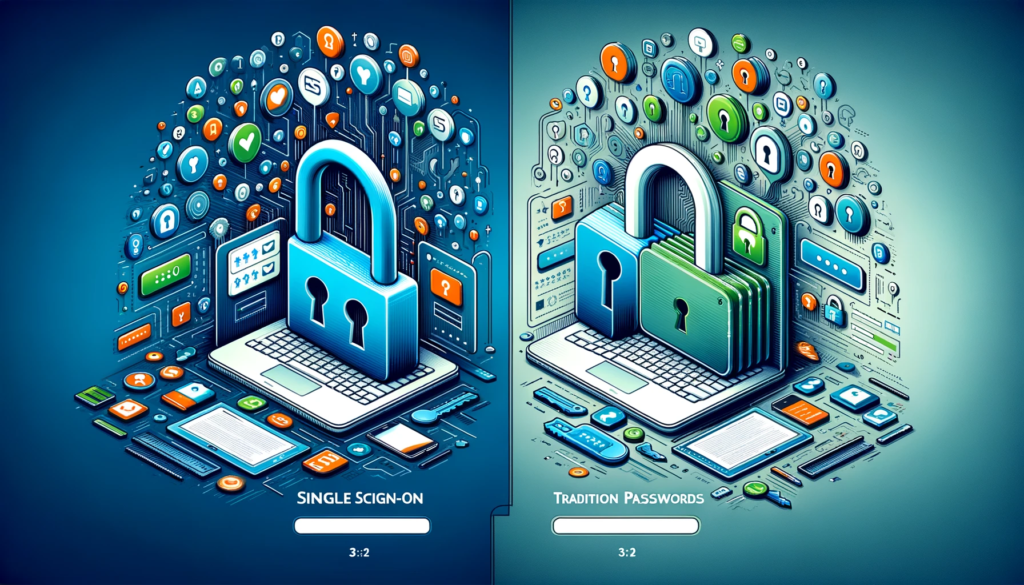
Single Sign-On (SSO) and traditional password systems each have their unique advantages and disadvantages. Understanding these can help organizations and individuals make informed decisions about their cybersecurity practices.
Single Sign-On (SSO)
Pros:
- Simplified Password Management: SSO reduces the need to manage multiple user passwords, leading to improved ease of use and less password fatigue.
- Increased Admin Control: SSO allows better visibility and control over user access to applications, reducing risks like shadow IT.
- Efficiency in Critical Situations: In fields like healthcare or law enforcement, SSO can provide quick access to necessary applications, thereby saving crucial time.
- Improved Security: SSO, especially when combined with MFA, can reduce attack vectors and provide layered security.
- Reduced IT Costs: SSO can lower help desk requests for password resets, saving money and resources.
- Regulation Compliance: Certain industries require automatic log-offs for security, which SSO enables.
Cons:
- High Cost: SSO can be expensive, especially for smaller organizations, as many features are often charged as add-ons.
- Dependence on Identity Providers (IdP): SSO systems require a separate IdP or directory service, which can add to costs and complexity.
- Limited to Web Apps: SSO is often only applicable to web applications and doesn’t cover other IT resources like server infrastructure or on-prem applications.
- Single Point of Failure: If the SSO provider or IdP is breached, all connected services could be compromised.
- Incompatibility and Inflexibility: Not all apps may be included in SSO services, and users have limited control over what SSO covers.
Traditional Passwords
Pros:
- User Control: Users have more flexibility and control over their individual accounts and passwords.
- Wider Applicability: Traditional passwords can be used across a broad range of applications and systems.
- Simplicity: They are straightforward to implement and don’t require complex infrastructural changes.
- Cost-Effective: Traditional password systems are generally less expensive to maintain than SSO solutions.
Cons:
- Password Fatigue: Users often struggle with remembering multiple complex passwords, leading to security risks like password reuse.
- Higher Risk of Phishing Attacks: Traditional password systems are more susceptible to phishing and other forms of cyberattacks.
- Administrative Burden: Managing traditional passwords can be time-consuming and resource-intensive for IT departments.
- Less Efficient: Traditional password systems can be less efficient, especially in time-critical environments, as users need to log in to multiple systems separately.
SSO offers streamlined access and enhanced security in certain contexts but comes with higher costs and potential vulnerabilities. Traditional passwords, while more flexible and cost-effective, can lead to security challenges due to password fatigue and higher susceptibility to cyberattacks.